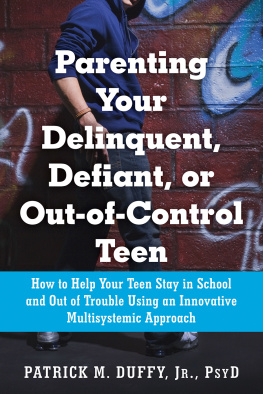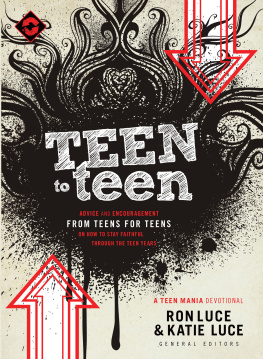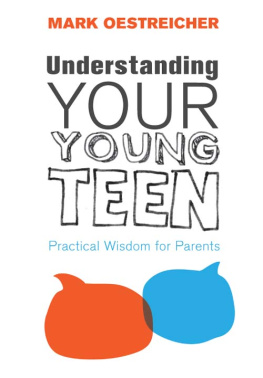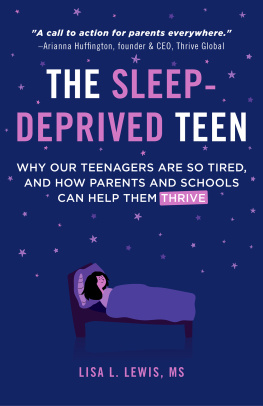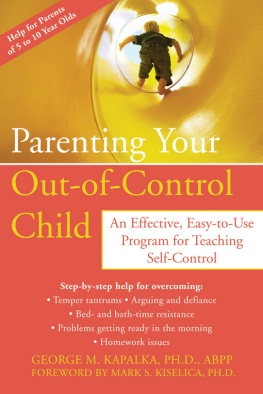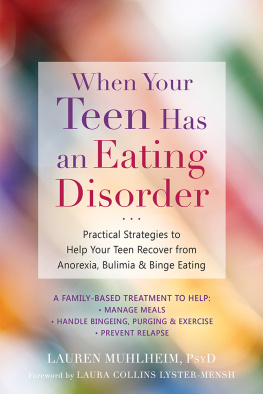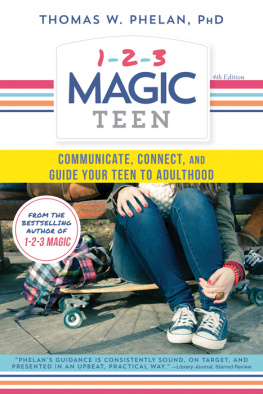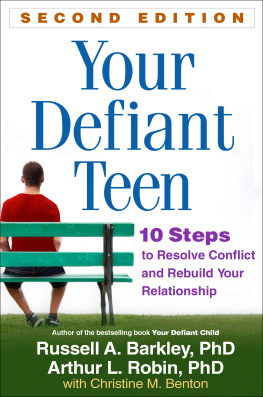
Patrick M. Duffy, Jr., PsyD,is a licensed clinical psychologist who has specialized in working with children and families with significant behavioral challenges since 1993. After working in various programs, including a community mental health center, psychiatric hospital, childrens home, and outpatient centers, he began using the evidence-based practice, multisystemic therapy (MST). Through his years of experience, he has served as a therapist, consultant, speaker, and trainer of therapists across seventeen states and in seven countries outside of the United States. Duffy is an annual presenter at multiple conferences that attract an international audience of professionals, and has presented at several conferences across the US and Canada.
This is such an important book! Patrick M. Duffy has translated research and clinical knowledge into workable steps to help parents turn behavior around at home before turning to professionals for help. This book empowers parents to have confidence in themselves and gives them the knowledge and tools to help their children by focusing on reestablishing a good parent/child relationship. The examples throughout the book will help parents recognize they are not alone in dealing with these problems. Every family service, school advisor, and family doctor should have a copy of this bookand encourage parents to read it!
Bernadette Christensen is clinical director at The Norwegian Center for Child Behavioral Development and teaches in the psychology department at the University of Oslo, Norway
How terrific that Patrick M. Duffy has made available to parents the practical and effective strategies that have been developed through almost twenty years of research. With this readable and immediately useful handbook, a parent of a youth who has persistent problems with self-regulation and non-compliance will be able to access intervention strategies utilized in approaches like multisystemic therapythe most comprehensively researched, evidence-based intervention for teenagers whose behaviors lead them down a pathway into the juvenile justice system. Parents and behavioral health clinicians can take the pragmatic ideas and straightforward practices currently only accessible to a small number of families and put them immediately into practice. More importantly, they will likely see positive results in the behavior of their teenager! Yes, it requires a parent to alter his or her current parenting stylenot an easy taskbut the outcome in terms of youth success and family harmony are well worth the effort.
Eric W. Trupin, PhD, professor and vice chairman at the University of Washington School of Medicine
Patrick Duffys book provides the kind of real-world guidance that is distinctly pragmatic and direct. While he clearly conveys empathy for parents of very troubled youth, he simultaneously reinforces the goal of striving for warmth and control as the critical element of the parent-child relationship. Duffy draws on both research and his considerable experience with this population of youth and their families. The breadth and diversity of the stories, strategies, and techniques contained in this volume should provide many parents with some of the tools they need to achieve a more positive relationship with their child, and find a sense of hope in sustaining it. While Duffy does not eschew professional guidance as needed, his focus is on helping parents gain confidence and skills in effectively managing their childrens behavior. This is a significant resource for parents whose teens are on the edge ofor inthe red zone, and without effective intervention face terribly negative and cascading consequences.
Patrick J. Kanary, director at the Center for Innovative Practices at the Institute for the Study and Prevention of Violence at Kent State University

Publishers Note
This publication is designed to provide accurate and authoritative information in regard to the subject matter covered. It is sold with the understanding that the publisher is not engaged in rendering psychological, financial, legal, or other professional services. If expert assistance or counseling is needed, the services of a competent professional should be sought.
Distributed in Canada by Raincoast Books
Copyright 2014 by Patrick M. Duffy, Jr.
New Harbinger Publications, Inc.
5674 Shattuck Avenue
Oakland, CA 94609
www.newharbinger.com
Cover design by Amy Shoup
Acquired by Melissa Kirk
Edited by Elizabeth Berg
All Rights Reserved
Library of Congress Cataloging-in-Publication Data
Duffy, Patrick M., Jr.
Parenting your delinquent, defiant, or out-of-control teen : how to help your teen stay in school and out of trouble using an innovative multisystemic approach / Patrick M. Duffy, Jr.
pages cm
Includes bibliographical references.
ISBN 978-1-62625-083-3 (paperback) -- ISBN 978-1-62625-084-0 (pdf e-book) -- ISBN 978-1-62625-085-7 (epub) 1. Problem children. 2. Parenting. 3. Teenager and parent. I. Title.
HQ773.D84 2014
305.235--dc23
2014033246
To my wonderful parents, my loving wife, Kelly, my precious girls, Regan and Ava, my sister and brother, and the next generation of the Duffy family. May the material of this book be irrelevant to you.
Contents
Acknowledgments
To acknowledge the people who were crucial to the completion of this work, I must begin with those who supported and encouraged me throughout the process. I first shared the idea with my parents, Katherine and Michael Duffy, and as usual, they were very supportive and encouraged me throughout the effort, only to be thanked by being tasked with initial editing.
My lovely wife, Kelly Duffy, has provided support, love, and encouragement as this project progressed. Without such a loving relationship, this text would still be incomplete. For her effort, she too was tasked with initial editing.
I can say with absolute certainty that this book would not have been written without my experiences with evidence-based approaches like multisytemic therapy (MST). The views presented in this book, however, are my own and do not necessarily reflect those of MST Services or the developers of the MST model.
I would like to thank my agent, Rita Rosenkranz, for giving me a chance. Without her support and guidance, this text would have remained confined to my hard drive.
Melissa Kirk, acquisitions editor for New Harbinger Publications, saw potential in this project, and she and Jess Beebe, editorial manager, provided invaluable support and suggestions. Elizabeth Berg, freelance editor, was instrumental in refining the text for clarity and brevity. Thanks to them and the entire team at New Harbinger Publications for bringing this to fruition.
Introduction
If you have picked up this book, you are most likely frustrated with trying to manage your teenagers behavior. Although you may feel alone in your efforts, I can assure you that there are many families facing a similar struggle. The Office of Juvenile Justice and Delinquency Prevention (Snyder 2008, 1) reports that in 2006 alone, law enforcement officers made an estimated 2.2 million arrests of people under the age of eighteen. The report also shows that juveniles accounted for 17 percent of violent crimes and 26 percent of property crimes in 2006. And these numbers, while staggering, still do not account for youths who are getting into trouble but have not been arrested.

